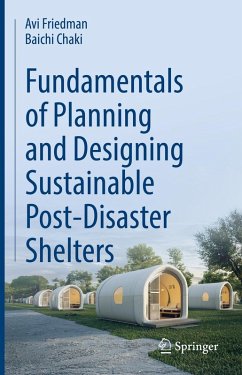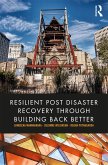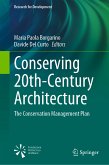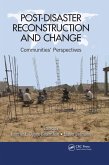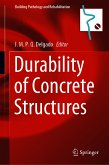The book explores essential principles and practices for planning and designing sustainable refugee shelters. With millions of people forced to flee their homes annually due to conflict, environmental disasters, or persecution, the urgency of this global crisis cannot be overstated. Since refugees often reside in temporary shelters for years after years, it is imperative to construct refugee camps and shelters that address their long-term needs. This comprehensive guide delves into emergency shelter design and refugee camp planning concepts, exploring topics ranging from site selection and infrastructure development to shelter design and material choice. Drawing on real-world case studies and expert insights, this book offers a vital resource for architects, urban planners, humanitarian aid workers, policymakers, researchers, and students. As climate change exacerbates the refugee crisis, it becomes increasingly imperative to prioritize innovative, sustainable solutions for development and foster resilience.
Dieser Download kann aus rechtlichen Gründen nur mit Rechnungsadresse in A, B, BG, CY, CZ, D, DK, EW, E, FIN, F, GR, HR, H, IRL, I, LT, L, LR, M, NL, PL, P, R, S, SLO, SK ausgeliefert werden.
Hinweis: Dieser Artikel kann nur an eine deutsche Lieferadresse ausgeliefert werden.

